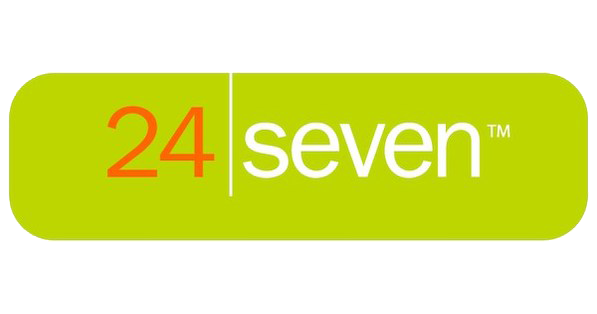Explore our comprehensive glossary on custom database development. Uncover its tools, significance, and diverse industry use cases.
What is custom-database-development?
Custom database development is the process of designing, creating, and maintaining a database system specifically tailored to meet the unique needs and requirements of an organization or project. Unlike generic, off-the-shelf solutions, a custom database is built from the ground up. For instance, while an off-the-shelf solution might offer a broad range of features, many of which may be unnecessary for a particular business, a custom database will be streamlined to provide only the functionalities that the business requires, ensuring efficiency and optimal performance.
What does custom-database-development involve?
Custom database development is a comprehensive process that includes:
- Requirement Analysis
Understanding the specific needs of the client, such as data storage, retrieval speed, and user access levels.
- Database Design
Architecting the database schema, tables, relationships, and indexes. For example, an e-commerce platform might require tables for products, users, orders, and reviews, each with specific relationships.
- Development
Actual coding and setup of the database using chosen technologies.
- Testing
Ensuring data integrity, speed, and security. This might involve stress-testing the database with large data sets to ensure it can handle peak loads.
- Deployment
Moving the database to a live environment.
- Maintenance
Regular updates, backups, and optimizations to ensure the database remains efficient and secure.
How is Security implemented in custom-database-development?
Security is a paramount concern. At WNPL, we ensure:
- Encryption
Data is encrypted both at rest (e.g., data stored on a disk) and in transit (e.g., data being transferred over a network). For instance, using SSL/TLS protocols for data in transit.
- User Authentication and Authorization
Implementing robust mechanisms like multi-factor authentication and role-based access controls. For example, in a hospital database, doctors might have different access levels than administrative staff.
- Regular Audits
Conducting periodic security checks to identify vulnerabilities. This could involve penetration testing to simulate potential attacks.
- Backup and Recovery
Ensuring data is regularly backed up and can be quickly restored. For instance, after a ransomware attack, having a recent backup can be invaluable.
- Firewalls and IDS
Using tools to monitor and counteract unauthorized access and potential threats.
How is Availability implemented in custom-database-development?
Availability ensures that the database remains accessible and functional:
Redundancy
Using multiple servers or clusters. If one server fails, another takes over, ensuring uninterrupted service. For example, in cloud environments, databases might be replicated across different geographic zones.
Load Balancing
Distributing incoming requests to prevent any single server from being overwhelmed.
Scheduled Maintenance
Performing updates during off-peak hours.
Cloud Solutions
Utilizing platforms like AWS or Azure that offer built-in high availability features.
Monitoring
Using tools to continuously check database health, allowing for quick issue detection and resolution.
What services does WNPL provide in custom-database-development?
WNPL offers:
- Database Design
Crafting a structure tailored to specific requirements.
- Data Migration
Transferring data from legacy systems or other databases. For instance, migrating data from an old MySQL database to a new, custom-built Oracle system.
- Integration
Ensuring the custom database works seamlessly with other systems, like CRM or ERP solutions.
- Performance Optimization
Regularly tweaking the database for maximum efficiency.
- Ongoing Maintenance and Support
Providing updates, patches, and addressing any issues that arise.
What are some common tools used in custom-database-development?
Custom database development is a multifaceted process that requires a range of tools to design, implement, manage, and optimize databases. Here's a breakdown of some of the most commonly used tools in the industry:
- Database Management Systems (DBMS):
- Relational Databases
Tools like SQL Server, Oracle, and MySQL are widely used for structured relational data storage and management.
- NoSQL Databases
For projects that require flexibility in data modeling or are dealing with vast amounts of unstructured data, NoSQL databases like MongoDB, Cassandra, and Redis are popular choices.
- ETL (Extract, Transform, Load) Tools:
- Apache NiFi
A versatile tool for data routing, transformation, and system mediation.
- Talend
Offers a wide array of connectors for data integration, quality, and management.
- Informatica PowerCenter
A widely recognized ETL tool that supports the entire data integration lifecycle.
- Database Design and Modeling Tools:
- ERwin Data Modeler
Helps in visualizing the database structure, designing the schema, and generating the necessary SQL scripts.
- MySQL Workbench
Provides SQL development, data modeling, and comprehensive administration tools for server configuration and user management.
- Performance Monitoring and Management:
- SolarWinds Database Performance Analyzer
Monitors SQL queries and provides insights to optimize performance.
- Redgate SQL Monitor
Offers real-time SQL Server performance monitoring and diagnostics.
- Backup and Recovery Tools:
- Veeam Backup & Replication
Provides fast, flexible, and reliable recovery of virtualized applications and data.
- Bacula
An open-source tool that manages backup, recovery, and verification of computer data across a network.
- Database Middleware and Drivers:
- ODBC (Open Database Connectivity) and JDBC (Java Database Connectivity)
These are APIs that allow applications to connect to databases irrespective of the database management system.
- Database Version Control:
- Liquibase
Helps in tracking, managing, and applying database schema changes.
- Flyway
Assists in versioning and evolving the database schema seamlessly.
- Query Performance and Optimization Tools:
- Query Tuning/Advisory tools
Many DBMSs come with built-in tools that analyze and suggest optimizations for SQL queries.
- Security Tools:
- DataSunrise Database Security
Provides real-time database protection, auditing, and compliance.
- IBM Guardium
Offers a comprehensive data protection platform for structured data in databases.
What are some examples and use cases of custom-database-development?
Custom databases cater to specific needs, as shown below. Each of these use cases requires specialized database functionalities, structures, and optimizations, which is where custom database development comes into play.
E-commerce Platforms:
Example
An online retailer with a vast product catalog, diverse customer base, and multiple payment gateways.
Use Case
A custom database can be designed to efficiently handle product inventories, user profiles, order histories, transaction records, and integrate seamlessly with payment systems. Such a database might also incorporate recommendation algorithms to suggest products to users based on their browsing and purchase history.
Healthcare Systems:
Example
A hospital or medical research facility.
Use Case
Custom databases in healthcare can manage patient records, appointments, billing, and medical histories. They can be tailored to ensure compliance with regulations like HIPAA, and integrate with other systems like radiology or pharmacy databases. In research, they might be designed to handle vast datasets from clinical trials or genetic research.
Financial Institutions:
Example
Banks, investment firms, or insurance companies.
Use Case
Databases can be custom-built to handle complex financial transactions, customer portfolios, risk assessments, and integrate with global stock exchange data feeds. For insurance companies, they might be tailored to manage policyholder data, claim histories, and risk assessment algorithms.
Supply Chain and Logistics:
Example
A multinational manufacturing company.
Use Case
A custom database can track inventory in real-time across multiple locations, manage shipments, supplier data, and integrate with IoT devices in warehouses for real-time monitoring. It can also be optimized for predictive analytics to forecast demand and manage stock levels.
Educational Institutions:
Example
Universities or online learning platforms.
Use Case
Databases can be developed to manage student records, course enrollments, grades, and feedback. For online platforms, they might also handle video content, quizzes, and discussion forums, and track student engagement metrics.
Real Estate and Property Management:
Example
A property listing website or a real estate agency.
Use Case
Custom databases can store property listings with detailed attributes (like location, size, amenities), manage bookings or viewings, handle transactions, and integrate with virtual tour software or GIS systems for location mapping.
Media and Entertainment:
Example
Streaming platforms or news agencies.
Use Case
Databases can be tailored to store vast multimedia content, manage user subscriptions, track content consumption patterns, and integrate with content delivery networks for efficient media streaming.
Research and Development:
Example
A scientific research lab studying climate change.
Use Case
A custom database might be designed to handle large datasets from satellite imagery, sensor data from ocean buoys, and climate models. It can be optimized for complex queries, data visualization, and integration with simulation software.
Public Sector and Governance:
Example
A city's municipal corporation.
Use Case
Databases can be developed to manage citizen records, property taxes, utility bills, and public service requests. They can also integrate with GIS systems for urban planning or disaster management.
Hospitality and Tourism:
Example
A hotel chain or travel booking platform.
Use Case
Custom databases can manage room inventories, guest profiles, booking histories, and special requests. For travel platforms, databases might handle flight schedules, hotel partnerships, traveler reviews, and dynamic pricing algorithms based on demand.
Agriculture and Farming:
Example
A large-scale farming corporation or agri-tech startup.
Use Case
Databases can be tailored to monitor crop yields, soil health data, weather patterns, and pest activity. Integration with IoT devices can provide real-time data from tractors, drones, or soil sensors.
Retail and Consumer Goods:
Example
A supermarket chain or an online fashion store.
Use Case
Custom databases can track inventory, sales data, customer preferences, and loyalty programs. They can also integrate with POS systems in physical stores and e-commerce platforms online.
Energy and Utilities:
Example
An electric utility company or a renewable energy startup.
Use Case
Databases can monitor energy consumption patterns, grid health, and outages. For renewable energy firms, they might track solar panel efficiencies, wind turbine outputs, and energy storage data.
Transportation and Mobility:
Example
A ride-hailing service or a public transit agency.
Use Case
Custom databases can manage vehicle data, driver profiles, ride histories, and dynamic pricing. For public transit, they might handle schedules, maintenance records, and passenger flow data.
Gaming and Interactive Media:
Example
An online multiplayer game or a virtual reality platform.
Use Case
Databases can store user profiles, game scores, virtual assets, and game state data. They can also handle real-time interactions in multiplayer scenarios and integrate with payment gateways for in-game purchases.
Environmental and Conservation:
Example
A wildlife conservation organization or an environmental NGO.
Use Case
Custom databases can track species data, habitat health, human-wildlife conflict zones, and conservation project outcomes. Integration with satellite imagery can help monitor deforestation or urban encroachment.
Legal and Compliance:
Example
A law firm or a corporate compliance department.
Use Case
Databases can manage case histories, client profiles, legal precedents, and document archives. They can also be tailored to ensure data privacy regulations are met, such as GDPR or CCPA.
Sports and Fitness:
Example
A sports league management system or a fitness tracking app.
Use Case
Custom databases can handle athlete profiles, game statistics, league standings, and fan engagement data. For fitness apps, they might track user workouts, health metrics, and dietary patterns.
Arts and Culture:
Example
A museum's digital archive or an online art marketplace.
Use Case
Databases can catalog artworks, historical artifacts, artist profiles, and visitor interactions. They can also manage sales, auctions, and digital reproductions.










